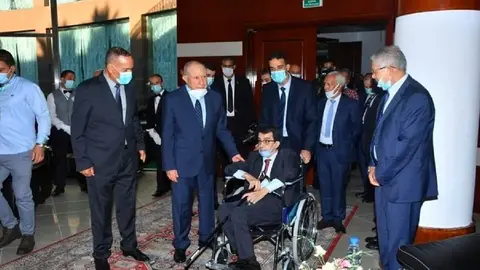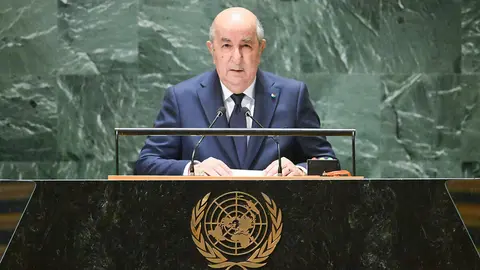Algeria: a setback for Niger

While Tebboune kept proclaiming loud and clear that he rejected any mediation in the conflict between him and Morocco, while rejecting on more than one occasion the direct dialogue proposed by his Western neighbour, the Algerian government redoubled its efforts to offer mediation to Palestinian factions, Russia and Ukraine, and more recently to the Nigerians, whose country is in crisis after the 26 July coup d'état.
Long before Tebboune, successive Algerian state leaders since 1992 rejected any foreign mediation in the crisis that arose when the democratic electoral process was interrupted on 12 January 1992. At a time when the Algerian people were suffering the agonies of a civil war that left more than 250,000 dead and 20,000 missing, not to mention the aftermath that still lingers, the Algerian leaders rejected all offers of mediation made by third parties, on the grounds that this was an internal affair to be settled among Algerians. A matter that has never been resolved.
The current regime continues to suffer from popular disaffection, and the country remains in a latent crisis marked by daily arrests, the imprisonment of several hundred people and the banning of all associative and militant life. The regime also refuses to act as a good offices mediator to bring the Sahara issue to a definitive end before the UN bodies, just as it refuses to take part in the round tables proposed by the UN between Morocco, Algeria and the Polisario, as Omar Hilale, Morocco's ambassador to the UN, recently reminded his Algerian counterpart.
While refusing all mediation in conflicts in which it is directly involved and rejecting all offers of dialogue, the Algerian regime stubbornly insists on playing the role of protagonist in other conflicts. For example, it tackles the tough issue of perpetual dissension between Palestinian factions without getting beyond a couscous in Algiers and a handshake between top Palestinian leaders.

Without learning from the failure of this failed mediation, despite the fact that Algeria is held in high esteem in the eyes and hearts of the Palestinians, Tebboune, against all odds and no doubt caught up in the euphoria of the welcome he received from Vladimir Putin in Moscow, launched the Algerian initiative to put an end to the Russo-Ukrainian war that has been going on since 24 February 2022. This initiative has been described as dead-end, as its initiator did not go beyond a simple announcement of intentions.
It is true that the war between Russia and Ukraine is on a completely different scale. It is too big for a regime that cannot even provide its people with the bare minimum of basic foodstuffs. Not even water in domestic taps. Not to mention the total disconnect between the Algerian people and the leaders imposed on them through electoral fraud and repression. The coup d'état perpetrated on 26 July by a faction of the Nigerian army to overthrow President Mohammed Bazoum and the ensuing crisis seemed tailor-made for the power in Algiers to call for mediation between the warring parties. After several contacts and a few pilgrimages by the foreign minister, Algiers announced on 2 October that it had succeeded in getting its plan to end the crisis accepted.

Less than twenty-four hours after this announcement, Niamey issued a categorical denial, stating that the transitional period proposed by Algeria could only be determined and set by the Nigerians. With a little more insight, Algiers would never have insisted on playing a role that hardly suits it. ECOWAS had made this clear to it not long ago when it told it that Algerian mediation was not welcome. This was confirmed by Bazoum's foreign minister. But Bazoum's stubbornness in trying to score a few points to restore his tarnished reputation ended in humiliation.
Yes, a real slap in the face from which Algeria could well have escaped, as it continues to collect failures and setbacks in all areas of the international scene, the most recent and biting of which were the refusal of the BRICS countries to accept its bid, followed by its recent withdrawal from the race to host the 2025 and 2027 editions of the Africa Cup of Nations. Previously, Algiers had failed to even get its candidate onto the CAF Executive Committee, having been soundly defeated by Libya, whose football is no match for that of its Algerian neighbour. But that did not prevent the Libyan candidate from beating his Algerian rival by 38 votes to 15, i.e. double the number of votes plus eight votes for a tip. This gives an idea of Algeria's current place on the African stage under the leadership of the Tebboune-Chengriha tandem.











